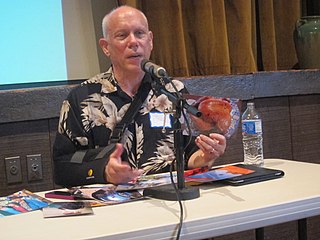A Quote by Jack Dangermond
In the area of field apps, Collector for ArcGIS is great, but where do you go? There's a navigator app. And then what do you do when you get there? There's a workforce app. So all of these apps work hand-in-hand to support field workers.
Related Quotes
A person who is app-dependent is always searching for the best app; and as soon as its routine has been executed, the person searches for the next app. A person who is app-enabled also uses apps frequently. But he or she is never limited by the current array of apps; apps will free the person to do what he or she wants to do, or needs to do, irrespective of the next application of the app. An app-enabled person can also put devices away, without feeling bereft.
Best of all, persons can sometimes be app-transcendent: making dramatic progress or discoveries, without any dependence on any app. In this context, I like to mention Steve Jobs. While he had as much to do as anyone with the invention and development of apps, he NEVER was limited by the current technology - indeed, he typically transcended it and relied on his own considerable wits.































